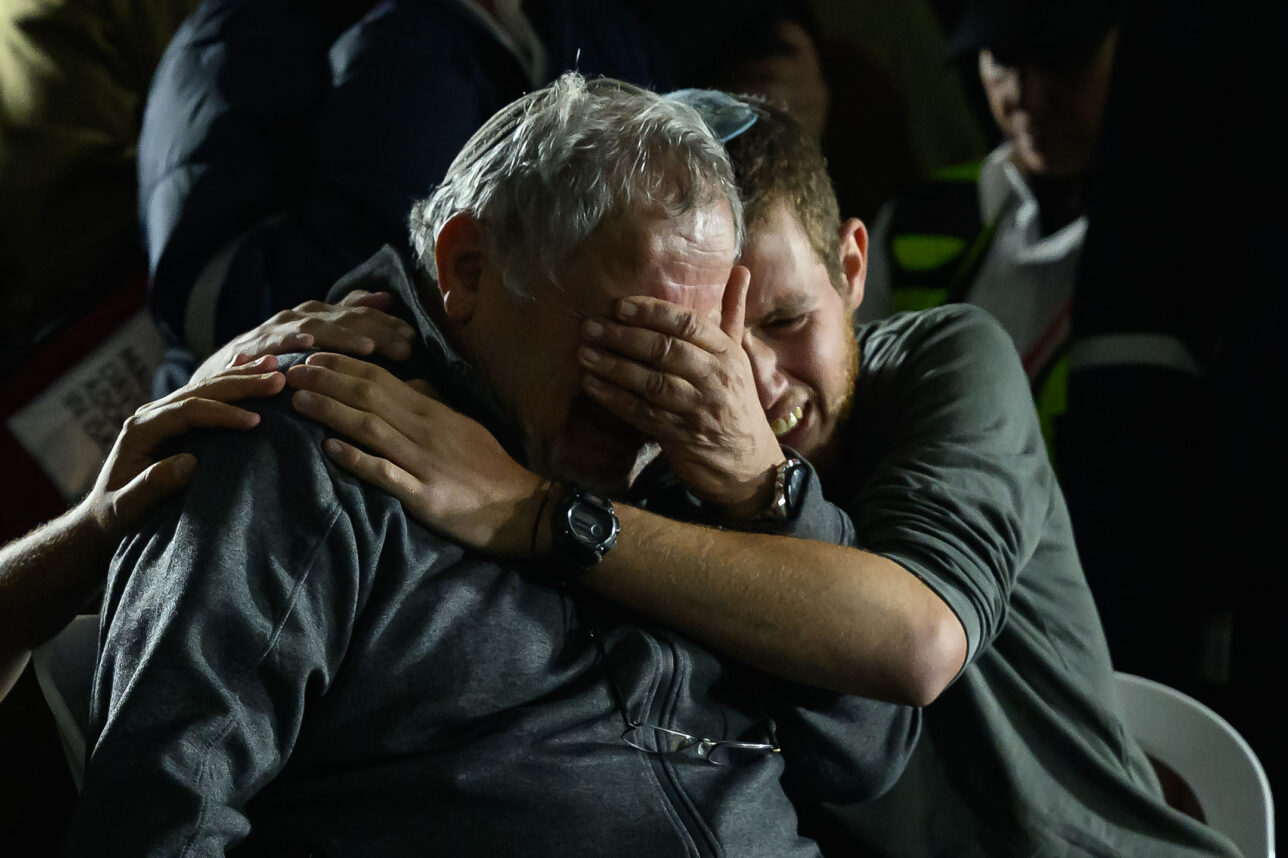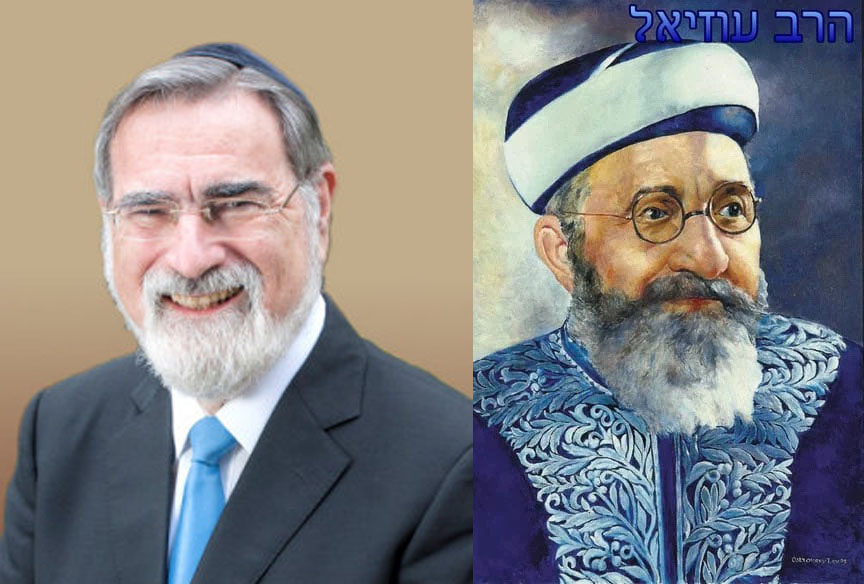
The great English novelist George Eliot once wrote: “But what we call our despair is often only the painful eagerness of unfed hope.”
Recent days have seen the release of two very interesting polls on Palestinian attitudes regarding a myriad of issues regarding the conflict with Israel, especially relating to the anticipated application of Israeli sovereignty to parts of Judea and Samaria.
Both polls, one conducted by the Palestinian Center for Policy and Survey Research (PSR) and the other by the Washington Institute for Near East Policy, paint a picture of Palestinian despair.
According to the PSR survey, a large plurality of Palestinian respondents do not think that Jordan, Egypt or Europe will take any meaningful steps against Israel in response to its application of sovereignty, while 78 percent do not expect Arab countries in the Gulf to end normalization measures with Israel.
Furthermore, very high percentages of Palestinians believe the consequences of the Israeli application of sovereignty beyond the Green Line, the armistice line created by Jordanian and Israeli negotiators in 1949, will be dire for them.
Seventy-three percent say they are worried that people will not be able to travel from the Gaza Strip to the West Bank or Israel for medical treatment, while 70 percent are worried that they will soon witness shortages or a complete cut-off of supplies of water and electricity from Israel. Sixty-five percent are worried that armed clashes will erupt with Israel. Another 65 percent are worried that the Palestinian Authority will collapse or fail to deliver services. Finally, 63 percent are worried that security chaos and anarchy will return to Palestinian life.
These results demonstrate a population in despair.
The Washington Institute’s surveys have been taking the pulse of Palestinian society for ten years now. In the past six years, Palestinian acceptance of the principle of “two states for two peoples—the Palestinian people and the Jewish people,” has massively eroded. In 2014 43 percent of the Palestinian population definitely or probably accepted this international standard for an end to the conflict, while today only nine percent do. A full 67 percent of the Palestinian population definitely reject this formula for a resolution to the long-standing conflict.
Taken together, these surveys actually might offer a glimmer of hope to those who wish to see the conflict finally ended.
Historically, wars and conflicts have ended when one side gives up and understands it will not be able to achieve its war aims.
Historically, wars and conflicts have ended when one side gives up and understands it will not be able to achieve its war aims.
The Israel-Palestinian conflict began in earnest over a century ago, before there was one Israeli foot in Judea and Samaria and even before the State of Israel was established in 1948.
The bloody conflict began in the early part of the 20th century when the Jewish people’s national liberation movement began to pick up momentum and achieve international legal, diplomatic and political successes. The Palestinian leadership reacted with a strategy of violent rejectionism and upheld a maximalist position that it would not countenance any reestablishment of sovereignty in the indigenous and ancestral land of the Jewish people.
The conflict was not about land because the Jews had none, and not about power and control because the Jews remained a largely subjugated and marginalized community, as opposed to the Arab community which had direct access to the colonial powers, whether Ottoman or British.
Unfortunately, violent Arab rejectionism to the Jewish people’s legal, historical and moral right to return as a state among the family of nations did not abate with time or reality. While a Palestinian state was offered on the vast majority of all of the territory of Mandatory Palestine in 1937 and by the international community in 1947, the reaction was more violence and rejection.
The Palestinian leadership has continued to reject any peaceful resolution to the conflict, as long as their goals remain intact.
In recent years, as opposed to the strongly held views of many in the West, the Palestinian leadership has continued to reject any peaceful resolution to the conflict, as long as their goals remain intact.
In 2001 and 2008, successive Israeli prime ministers offered a Palestinian state in all, or almost all, of the West Bank and Gaza, as well as a division of Jerusalem and control of the holy sites. These overly generous offers were rejected out of hand, even though they constituted full Israeli agreement to almost every ostensible Palestinian demand.
However, in 2008, Palestinian leader Mahmoud Abbas gave an indication as to what the conflict was really about when he walked away from negotiations, even as the offer sat on the proverbial table, because he would have to sign end-of-claims and end-of-conflict clauses in any final status agreement.
In other words, this was never about territory, borders, settlements or Jerusalem. It was about recognizing the permanence of the State of Israel as the national homeland of the Jewish People.
In 2014, Abbas said he would in “no way” ever recognize Israel as a Jewish state.
It is clear that this absolutist position has influenced a steadily increasing rejectionism among his population in the intervening years, as the poll by the Washington Institute indicates. Palestinians have demonstrated that they would rather not have a state than have to recognize the right of the Jewish people to a state.
This obviously means that there is little hope for the “two states for two peoples” formula, used by every president, both Democrat and Republican, for decades, to end the conflict.
This was true when Israel made generous offers and when it made substantial concessions, like disengaging from Gaza, freezing the building of settlements and releasing Palestinian terrorists from its prisons.
However, perhaps despair will succeed where promise and compromise failed.
Perhaps the idea of Israel applying its sovereignty to territory that the Palestinians have long seen as theirs will finally break their will to continue fighting, to violently resist a peaceful resolution to the conflict, and finally bring them back to negotiations.
Perhaps the idea of Israel applying its sovereignty to territory that the Palestinians have long seen as theirs will finally break their will to continue fighting, to violently resist a peaceful resolution to the conflict, and finally bring them back to negotiations.
As Eliot noted, despair can be the painful eagerness of unfed hope. It might be time to feed this hope through a prism of despair that finally convinces the Palestinians that the end of the conflict is in their best interests and that the longer they continue to resist it, the more painful the process will be.
Nave Dromi is an Israeli commentator and director of the Middle East Forum’s Israel office.






















 More news and opinions than at a Shabbat dinner, right in your inbox.
More news and opinions than at a Shabbat dinner, right in your inbox.